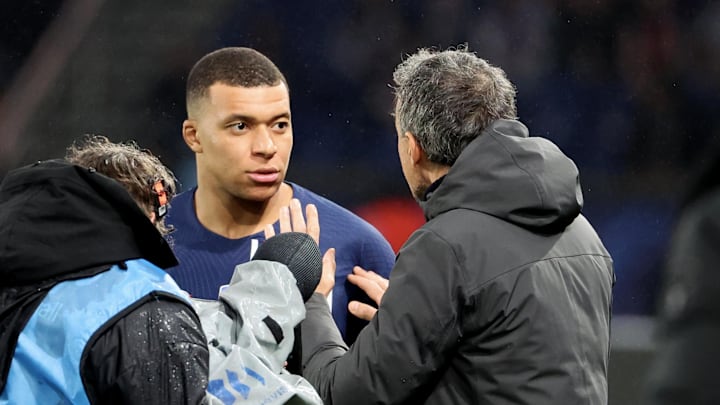Paris Saint-Germain manager Luis Enrique made a bold decision during Sunday's match against Stade Rennais at the Parc des Princes. Despite trailing 1-0 and in search of an equalizer, Enrique substituted star forward Kylian Mbappe in the 65th minute.
The move, which ultimately led to a late game-tying goal from Goncalo Ramos for a 1-1 draw, drew significant attention and speculation. RMC Sport pundit Christophe Dugarry criticized Enrique's decision, suggesting a potential underlying dislike for Mbappe.
"I think Luis Enrique doesn’t like Kylian Mbappe," Dugarry remarked on RMC Sport. "He doesn’t like the way he plays and his attitude."
Dugarry's comments sparked discussions about Enrique's management style and the dynamics between coach and player. PSG's decision reflects a prioritization of team interests over individual players, a lesson learned from past experiences with Neymar Jr. and Lionel Messi.
The situation raises questions about Enrique's willingness to bench Mbappe when necessary and the potential consequences for team morale and performance. Despite the controversy, PSG's draw against Stade Rennais underscores the team's resilience and determination to compete at the highest level.
Luis Enrique doesn't like Kylian Mbappe, says pundit
Moving forward, all eyes will be on Enrique and Mbappe as PSG navigates through a crucial phase of the season. The outcome of their relationship and its impact on the team's success will be closely monitored by fans and pundits alike.
Enrique's decision to substitute Mbappe highlights the complexities of managing a star-studded team like PSG, where individual egos and team cohesion must be delicately balanced. While some may interpret the move as a sign of tension between coach and player, others see it as a strategic decision aimed at maximizing team performance.
Regardless of the underlying motivations, Enrique's actions underscore his authority as manager and his commitment to making difficult decisions in the best interest of the team. As PSG continues its pursuit of domestic and European success, Enrique's management style and his handling of high-profile players like Mbappe will remain under scrutiny.
